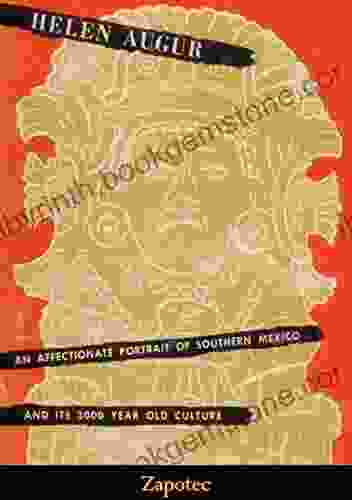How Four Patriarchs, Three Queens, and Two Emperors Decided What Christians Would Believe: The Ecumenical Councils That Shaped Christianity

The development of Christianity was shaped by a series of ecumenical councils, where church leaders met to discuss and establish doctrine. These councils were pivotal in defining the beliefs and practices of the Christian faith, and were often attended by patriarchs, queens, and emperors, who played a significant role in the decisions made.
One of the most important ecumenical councils was the Council of Nicaea, held in 325 AD. The council was convened by Emperor Constantine the Great and was attended by over 300 bishops. The council's primary purpose was to address the Arian heresy, which denied the divinity of Jesus Christ.
4.4 out of 5
| Language | : | English |
| File size | : | 699 KB |
| Text-to-Speech | : | Enabled |
| Screen Reader | : | Supported |
| Enhanced typesetting | : | Enabled |
| Word Wise | : | Enabled |
| Print length | : | 355 pages |
The Council of Nicaea was a landmark event in the history of Christianity. The council fathers, led by Patriarch Athanasius of Alexandria, condemned Arianism as heresy and affirmed the Nicene Creed, which declared that Jesus Christ is "God from God, Light from Light, true God from true God, begotten, not made, of one Being with the Father." The Nicene Creed is still recited by Christians today and is considered one of the most important statements of Christian faith.
Another important ecumenical council was the Council of Chalcedon, held in 451 AD. The council was convened by Emperor Marcian and was attended by over 600 bishops. The council's primary purpose was to address the Nestorian heresy, which denied the unity of Jesus Christ's divine and human natures.
The Council of Chalcedon condemned Nestorianism as heresy and affirmed the Chalcedonian Definition, which declared that Jesus Christ is "one Person with two natures, without confusion, without change, without division, without separation." The Chalcedonian Definition is still considered one of the most important statements of Christian faith.
The ecumenical councils were not without their controversies. The Council of Ephesus, held in 431 AD, was marred by violence and intimidation. The council was convened by Emperor Theodosius II and was attended by over 200 bishops. The council's primary purpose was to address the Nestorian heresy, but it was also used by Patriarch Cyril of Alexandria to condemn his rival, Patriarch Nestorius of Constantinople.
The Council of Ephesus is a reminder that the ecumenical councils were not always a harmonious affair. The council fathers were often divided by theological disputes and personal rivalries. However, despite the controversies, the ecumenical councils played a vital role in shaping the beliefs and practices of the Christian faith.
The Role of Patriarchs, Queens, and Emperors
The ecumenical councils were attended by a wide range of individuals, including patriarchs, queens, and emperors. These individuals played a significant role in the decisions made by the councils.
The patriarchs were the leaders of the major Christian churches. They presided over the councils and played a key role in shaping the discussions. The patriarchs were also responsible for enforcing the decisions of the councils.
The queens and emperors were also important participants in the ecumenical councils. They provided financial and political support for the councils and often played a role in mediating disputes. In some cases, the queens and emperors even issued edicts that enforced the decisions of the councils.
The role of patriarchs, queens, and emperors in the ecumenical councils is a reminder that the development of Christianity was not simply a matter of theological debate. It was also a political and social process that involved the participation of a wide range of individuals.
The Legacy of the Ecumenical Councils
The ecumenical councils had a profound impact on the development of Christianity. The councils defined the beliefs and practices of the Christian faith and established the structure of the Church. The decisions made by the councils continue to influence the Christian faith today.
The Nicene Creed is still recited by Christians today and is considered one of the most important statements of Christian faith. The Chalcedonian Definition is also still considered one of the most important statements of Christian faith. The decisions made by the ecumenical councils have shaped the Christian faith for centuries and will continue to do so for years to come.
The ecumenical councils were a pivotal moment in the history of Christianity. The councils defined the beliefs and practices of the Christian faith and established the structure of the Church. The decisions made by the councils continue to influence the Christian faith today.
The ecumenical councils were attended by a wide range of individuals, including patriarchs, queens, and emperors. These individuals played a significant role in the decisions made by the councils. The role of patriarchs, queens, and emperors in the ecumenical councils is a reminder that the development of Christianity was not simply a matter of theological debate. It was also a political and social process that involved the participation of a wide range of individuals.
4.4 out of 5
| Language | : | English |
| File size | : | 699 KB |
| Text-to-Speech | : | Enabled |
| Screen Reader | : | Supported |
| Enhanced typesetting | : | Enabled |
| Word Wise | : | Enabled |
| Print length | : | 355 pages |
Do you want to contribute by writing guest posts on this blog?
Please contact us and send us a resume of previous articles that you have written.
 Best Book
Best Book Page Flip
Page Flip Bookshelf
Bookshelf Literary loom
Literary loom Chapter
Chapter Bookish
Bookish PageTurner
PageTurner Bibliophile
Bibliophile Story
Story Inkwell
Inkwell Bookworm
Bookworm Labyrinth
Labyrinth Plot Twist
Plot Twist Prose
Prose Paperback
Paperback Storyteller
Storyteller Sanctuary
Sanctuary Fiction
Fiction Reading
Reading Chronicle
Chronicle Read
Read Joe Starita
Joe Starita Kelly Gay
Kelly Gay Dick J Reavis
Dick J Reavis Xiaolu Guo
Xiaolu Guo Mike Katz
Mike Katz Nick Snelling
Nick Snelling Michelle Damiani
Michelle Damiani K C Jones
K C Jones Brandon Q Morris
Brandon Q Morris Jeremy Ford
Jeremy Ford Jane Sutcliffe
Jane Sutcliffe Graham Wilson
Graham Wilson Lisa Morton
Lisa Morton Cookie Mueller
Cookie Mueller Eric Lax
Eric Lax Marie Killilea
Marie Killilea Robert Appleton
Robert Appleton Cyril W Beaumont
Cyril W Beaumont Tim Judah
Tim Judah David Drake
David Drake Michael Reardon
Michael Reardon Luca Turin
Luca Turin Karen O Brien
Karen O Brien Torre Deroche
Torre Deroche Neal Stephenson
Neal Stephenson Danica Roem
Danica Roem Eva Heller
Eva Heller James Rubik
James Rubik Tracey Lange
Tracey Lange Sean Egan
Sean Egan Reprint Edition Kindle Edition
Reprint Edition Kindle Edition D Ward Cornell
D Ward Cornell Zeena Shah
Zeena Shah Stephen Kinzer
Stephen Kinzer Marko Kloos
Marko Kloos Coryn Anaya Clarke
Coryn Anaya Clarke Henry Koster
Henry Koster Denise Hamilton
Denise Hamilton Jerry Beck
Jerry Beck Thefirstdefier
Thefirstdefier Ella Barrick
Ella Barrick Karen Stocker
Karen Stocker Clive Cussler
Clive Cussler Dan Simmons
Dan Simmons Jim Hutchinson
Jim Hutchinson David G Hartwell
David G Hartwell Clyde D Souza
Clyde D Souza Dennis Lehane
Dennis Lehane Theo Dorgan
Theo Dorgan Massimiliano Musina
Massimiliano Musina Pat Grillo
Pat Grillo Ian Douglas
Ian Douglas Mia Michaels
Mia Michaels D K Pike
D K Pike Sarah Jackson
Sarah Jackson D Dauphinee
D Dauphinee J A Johnstone
J A Johnstone Loretta Outwater Cox
Loretta Outwater Cox Emma Larkin
Emma Larkin Karen Mcnally
Karen Mcnally Siri Hustvedt
Siri Hustvedt Joshua M Greene
Joshua M Greene Douglas Century
Douglas Century Ian Whitaker
Ian Whitaker Michael Henry
Michael Henry Dani Dyer
Dani Dyer Explorer Publishing
Explorer Publishing Ian Frazier
Ian Frazier Leonard S Marcus
Leonard S Marcus D Scott Bowers
D Scott Bowers Mary Alice Monroe
Mary Alice Monroe Dk Eyewitness
Dk Eyewitness John Parascandola
John Parascandola Todd Geers
Todd Geers Julissa Arce
Julissa Arce Issa Rae
Issa Rae Gene Wolfe
Gene Wolfe Warren Murphy
Warren Murphy Bill Geist
Bill Geist Andrew Patrick Nelson
Andrew Patrick Nelson Dakota Krout
Dakota Krout Connie Willis
Connie Willis J J Green
J J Green Olivia Campbell
Olivia Campbell Terri Kozlowski
Terri Kozlowski Dahlma Llanos Figueroa
Dahlma Llanos Figueroa Prince
Prince John Tanner
John Tanner Dan Abnett
Dan Abnett Victor Villasenor
Victor Villasenor Kyle Widner
Kyle Widner Dan Grunfeld
Dan Grunfeld Matthew Quirk
Matthew Quirk Susan Cross
Susan Cross John Logan
John Logan Joy Deja King
Joy Deja King James Seabright
James Seabright Darren Critchley
Darren Critchley Jennifer M Eaton
Jennifer M Eaton Nick Jans
Nick Jans Craig Seymour
Craig Seymour June Emerson
June Emerson Jacques D Amboise
Jacques D Amboise Roy Kinnard
Roy Kinnard Connie Malamed
Connie Malamed Philip Simmons
Philip Simmons Grady Hendrix
Grady Hendrix Cp Mchugh
Cp Mchugh David Riley
David Riley Ursula K Le Guin
Ursula K Le Guin Sujean Rim
Sujean Rim Gabrielle Zevin
Gabrielle Zevin Nancy Marchant
Nancy Marchant Dalai Lama
Dalai Lama Em Brown
Em Brown Karolyn Kiisel
Karolyn Kiisel Deanna Amodeo
Deanna Amodeo Tom Satterly
Tom Satterly Helen Augur
Helen Augur M R Forbes
M R Forbes Jay Ryan
Jay Ryan Marius Kociejowski
Marius Kociejowski Yair Lapid
Yair Lapid Elizabeth Reid
Elizabeth Reid Kristen Britain
Kristen Britain Kristina Mcmorris
Kristina Mcmorris Dana Sachs
Dana Sachs Yoko Hatta
Yoko Hatta Wyclef Jean
Wyclef Jean Danny Trejo
Danny Trejo John Dennehy
John Dennehy Laura Donnelly Bethmann
Laura Donnelly Bethmann William Schoell
William Schoell Karen Swan
Karen Swan Synithia Williams
Synithia Williams Daniel L Bray
Daniel L Bray Henry James
Henry James Carrie Stuart Parks
Carrie Stuart Parks Fiona Davis
Fiona Davis L A Braun
L A Braun Jodi Picoult
Jodi Picoult Sarah Thornton
Sarah Thornton Eddie Robson
Eddie Robson Khadizhat Witt
Khadizhat Witt Nathan D Horowitz
Nathan D Horowitz Bob Martin
Bob Martin Sue Monk Kidd
Sue Monk Kidd C F Jernigan
C F Jernigan Mitsuo Kure
Mitsuo Kure Jon May
Jon May Ketut Suasti
Ketut Suasti Yuri Ulengov
Yuri Ulengov David Walton
David Walton Kenya Clark
Kenya Clark James Rosenquist
James Rosenquist John Grisham
John Grisham Sara Ackerman
Sara Ackerman Clive Johnson
Clive Johnson Dave Willmarth
Dave Willmarth Mary Paik Lee
Mary Paik Lee Crystal Allen
Crystal Allen Isadora Duncan
Isadora Duncan Steven Skaggs
Steven Skaggs Peter Ninnes
Peter Ninnes Cornelius C Kubler
Cornelius C Kubler Ronald Pratt
Ronald Pratt Douglas Preston
Douglas Preston Robert Silverberg
Robert Silverberg Roberto Pedreira
Roberto Pedreira Kirstin Dow
Kirstin Dow Curatoria Draconis
Curatoria Draconis Peter Hanson
Peter Hanson Euclides Da Cunha
Euclides Da Cunha Eric Musgrave
Eric Musgrave Janet Catherine Berlo
Janet Catherine Berlo Cynthia Saltzman
Cynthia Saltzman Kate Moore
Kate Moore Cyrus Highsmith
Cyrus Highsmith David W Galenson
David W Galenson Steve Huston
Steve Huston John Humphries
John Humphries True Kelley
True Kelley Pat Kramer
Pat Kramer Tom Geng
Tom Geng Piera Sonnino
Piera Sonnino Eat Like A Local
Eat Like A Local David Cousens
David Cousens Craig A Falconer
Craig A Falconer Dan Sugralinov
Dan Sugralinov Gerry Virtue
Gerry Virtue Daniel Ankele
Daniel Ankele Twyla Tharp
Twyla Tharp Craig Mod
Craig Mod Insun Lee
Insun Lee Clifford Irving
Clifford Irving Corky Parker
Corky Parker Tony Pike
Tony Pike Michael Shnayerson
Michael Shnayerson L E Modesitt Jr
L E Modesitt Jr Tony Rafael
Tony Rafael Margaret Coker
Margaret Coker Scott Moon
Scott Moon Criss Angel
Criss Angel Cory Doctorow
Cory Doctorow Taylor Fuller
Taylor Fuller Dan Gheno
Dan Gheno Ronald G Knapp
Ronald G Knapp Serena Gilbert
Serena Gilbert Marie Brennan
Marie Brennan Minal Hajratwala
Minal Hajratwala Colleen Hall
Colleen Hall Yunte Huang
Yunte Huang Karen Cheung
Karen Cheung Nigel Barley
Nigel Barley Crispin Sartwell
Crispin Sartwell T D Lake
T D Lake Daigo Murasaki
Daigo Murasaki Stephen Brooks
Stephen Brooks Tim Vernooij
Tim Vernooij Craig Melvin
Craig Melvin Jessica Kerwin Jenkins
Jessica Kerwin Jenkins Lisa Yaszek
Lisa Yaszek Donna Jackson Nakazawa
Donna Jackson Nakazawa Lee Feigon
Lee Feigon Susan Hayes
Susan Hayes J Z Foster
J Z Foster Henning Nelms
Henning Nelms Ward Larsen
Ward Larsen Maya Angelou
Maya Angelou Ben Ohmart
Ben Ohmart Tana Stone
Tana Stone Lorne Ryburn
Lorne Ryburn Barrington Barber
Barrington Barber Niall Teasdale
Niall Teasdale Joy Castro
Joy Castro Mark Bourrie
Mark Bourrie John Baxter
John Baxter Gabrielle Selz
Gabrielle Selz Sam Branson
Sam Branson Sue Tabashnik
Sue Tabashnik Faye Moskowitz
Faye Moskowitz Yelapa Memo
Yelapa Memo Pierre Alex Jeanty
Pierre Alex Jeanty John Mcwade
John Mcwade R P Jones
R P Jones Fiona Ferris
Fiona Ferris Rami Yelda
Rami Yelda Dan X Solo
Dan X Solo Dallas Shaw
Dallas Shaw Sarena Ulibarri
Sarena Ulibarri Dan Zehr
Dan Zehr Jeff Tanyard
Jeff Tanyard Tom Hill
Tom Hill Amaya Black
Amaya Black Dan Bigley
Dan Bigley Richard K Morgan
Richard K Morgan Sean Williams
Sean Williams Baby Professor
Baby Professor T J S George
T J S George Rory Miller
Rory Miller P A Piatt
P A Piatt Diana Hollingsworth Gessler
Diana Hollingsworth Gessler Co Spinhoven
Co Spinhoven Marcus Richardson
Marcus Richardson Cliff Mass
Cliff Mass Deborah Davis
Deborah Davis Jeremy Kroeker
Jeremy Kroeker Colin Souness
Colin Souness Eric Trueheart
Eric Trueheart Daniel Abraham
Daniel Abraham Colin Thubron
Colin Thubron Dennis Valder
Dennis Valder William Powers
William Powers Ann Fessler
Ann Fessler David E Wilkins
David E Wilkins Diana Friel Mcgowin
Diana Friel Mcgowin Donald Spoto
Donald Spoto Craig Briggs
Craig Briggs Trenae
Trenae Dale Brown
Dale Brown William J Burns
William J Burns Irene Aylworth Douglass
Irene Aylworth Douglass Cornelius Tacitus
Cornelius Tacitus Jason M Hough
Jason M Hough Mary Boone
Mary Boone Hal Vaughan
Hal Vaughan Irving Layton
Irving Layton J C Romero
J C Romero Robert Isenberg
Robert Isenberg Julia Chiles
Julia Chiles Iris Apfel
Iris Apfel Yutaka Yazawa
Yutaka Yazawa Harvey J Kaye
Harvey J Kaye Daniel Burleigh Parkhurst
Daniel Burleigh Parkhurst Kathryn Mcmaster
Kathryn Mcmaster Liza Rodman
Liza Rodman R Allen Chappell
R Allen Chappell Jane Hamilton
Jane Hamilton Cristina Salat
Cristina Salat Alexa West
Alexa West Monika Forsberg
Monika Forsberg Jennifer Thompson Cannino
Jennifer Thompson Cannino Marisol Enchufa
Marisol Enchufa Kati Marton
Kati Marton T Scott Bryan
T Scott Bryan Les Standiford
Les Standiford Blair Polly
Blair Polly Lorraine Bartlett
Lorraine Bartlett Nelson Demille
Nelson Demille Lan Sluder
Lan Sluder Sara Wheeler
Sara Wheeler Cynthia Newcomer Daniel
Cynthia Newcomer Daniel W B Yeats
W B Yeats Clayton Thomas Muller
Clayton Thomas Muller Clementina Oluchi Augustine
Clementina Oluchi Augustine Courtney Ragsdale
Courtney Ragsdale Roy Simmons
Roy Simmons Cody Whitfill
Cody Whitfill Jon Breakfield
Jon Breakfield Dan Diggles
Dan Diggles Marc Taro Holmes
Marc Taro Holmes Sasha Duerr
Sasha Duerr Cynthia Clampitt
Cynthia Clampitt Beverly Jenkins
Beverly Jenkins Tom Poland
Tom Poland Maggie Rowe
Maggie Rowe D J Bodden
D J Bodden Grace Barrington Shaw
Grace Barrington Shaw Rayna Tyler
Rayna Tyler Fred Ladd
Fred Ladd Michelle Brown
Michelle Brown Dan Popp
Dan Popp Gerda Weissmann Klein
Gerda Weissmann Klein Jake Spicer
Jake Spicer Frank Bruni
Frank Bruni Carl Sagan
Carl Sagan Gina Mckinnon
Gina Mckinnon Cookie Johnson
Cookie Johnson David Bischoff
David Bischoff Xinran
Xinran Daily Language Learning
Daily Language Learning Tc Manning
Tc Manning Craig Ferguson
Craig Ferguson Leslie Cabarga
Leslie Cabarga Danielle Krysa
Danielle Krysa Lina Rather
Lina Rather Cricut Maker
Cricut Maker Meredith Little
Meredith Little Craig Carey
Craig Carey Coert Voorhees
Coert Voorhees Dale Pollock
Dale Pollock Gael Berton
Gael Berton D K Holmberg
D K Holmberg Coralie Bickford Smith
Coralie Bickford Smith Mark Cramer
Mark Cramer Jeromy Hopgood
Jeromy Hopgood Hannah Hart
Hannah Hart Sarah Culberson
Sarah Culberson T R Napper
T R Napper Eleanor Ford
Eleanor Ford Myriam Gurba
Myriam Gurba Harry Lorayne
Harry Lorayne Garry Mcgee
Garry Mcgee Mancho Soto
Mancho Soto David Maraniss
David Maraniss Kristina Evans
Kristina Evans Ron Celano
Ron Celano Steve Biddle
Steve Biddle David Kroese
David Kroese Frances Dinkelspiel
Frances Dinkelspiel Jessica Walstad
Jessica Walstad Susan Linden Emde
Susan Linden Emde Cornelius N Grove
Cornelius N Grove Craig W Stanfill
Craig W Stanfill Sean Hartlieb
Sean Hartlieb Laurent Dubois
Laurent Dubois Robert De La Sizeranne
Robert De La Sizeranne Eric Jerome Dickey
Eric Jerome Dickey Marya Hornbacher
Marya Hornbacher Ernest J Gaines
Ernest J Gaines T J Clark
T J Clark James Patterson
James Patterson John Paul Brammer
John Paul Brammer Norman Hathaway
Norman Hathaway Linda Riesenberg Fisler
Linda Riesenberg Fisler Scott Kenemore
Scott Kenemore Jeremy Robert Johnson
Jeremy Robert Johnson Jason Cochran
Jason Cochran Stephen Armstrong
Stephen Armstrong Saad Z Hossain
Saad Z Hossain Helen Armstrong
Helen Armstrong Colin Jones
Colin Jones J Robert Kennedy
J Robert Kennedy Maham Johnson
Maham Johnson Lisanne Norman
Lisanne Norman Richard East
Richard East Irene Levin Berman
Irene Levin Berman Julie Lythcott Haims
Julie Lythcott Haims Robert E Innis
Robert E Innis Jeffrey Alford
Jeffrey Alford Jaclyn Bailie
Jaclyn Bailie Jerry Brotton
Jerry Brotton Jennifer Brozek
Jennifer Brozek Cyn Alexander
Cyn Alexander William Evans
William Evans Dr Quinta
Dr Quinta Mark Dawson
Mark Dawson Joan D Vinge
Joan D Vinge Cynthia Leal Massey
Cynthia Leal Massey Cynthia Royce
Cynthia Royce Love Belvin
Love Belvin Paula Giddings
Paula Giddings Margaret Fletcher
Margaret Fletcher Megan Lynch
Megan Lynch Pearl Tate
Pearl Tate Ingrid Sischy
Ingrid Sischy Joshua T Calvert
Joshua T Calvert Ernst Bergen
Ernst Bergen S A Snyder
S A Snyder Lin Wellford
Lin Wellford Susan Yeates
Susan Yeates D J Holmes
D J Holmes Chris Strodder
Chris Strodder Hannah Strong
Hannah Strong V D Bucket
V D Bucket Wade Motawi
Wade Motawi Cristy C Road
Cristy C Road Jordan Matter
Jordan Matter Nicolas Lampert
Nicolas Lampert Sheila Montilla
Sheila Montilla Olan Thorensen
Olan Thorensen Terry Darlington
Terry Darlington Dale Robinson
Dale Robinson Craig Martelle
Craig Martelle Gianrico Carofiglio
Gianrico Carofiglio Kevin J Anderson
Kevin J Anderson Jay C Labarge
Jay C Labarge Coryne Hall
Coryne Hall Rebecca Hardiman
Rebecca Hardiman Fethi Mansouri
Fethi Mansouri Olivia Dade
Olivia Dade Keith Recker
Keith Recker Culture Smart
Culture Smart Janet Koplos
Janet Koplos Joan Didion
Joan Didion Domnica Radulescu
Domnica Radulescu Max Allan Collins
Max Allan Collins Harold P Howard
Harold P Howard Thaddeus Carhart
Thaddeus Carhart Leila Guerriero
Leila Guerriero Geoff Saunders
Geoff Saunders Conn Iggulden
Conn Iggulden Luis Alberto Urrea
Luis Alberto Urrea Hyeonseo Lee
Hyeonseo Lee Peter Parnell
Peter Parnell Crypto Dukedom
Crypto Dukedom Colson Whitehead
Colson Whitehead Grace Goodwin
Grace Goodwin Ted Andrews
Ted Andrews Jeanne Farr Mcdonnell
Jeanne Farr Mcdonnell Brad Olsen
Brad Olsen Natasha Sims
Natasha Sims Michelle L Hardy
Michelle L Hardy Craig Johnson
Craig Johnson Dan Fox
Dan Fox Edward Johnston
Edward Johnston David Mikics
David Mikics Donna Zakowska
Donna Zakowska Porochista Khakpour
Porochista Khakpour Dawn Turner Trice
Dawn Turner Trice Parvati Sharma
Parvati Sharma Ellie Taylor
Ellie Taylor Dana Facaros
Dana Facaros Dallen J Timothy
Dallen J Timothy Nick Lyons
Nick Lyons Damion Hunter
Damion Hunter Nancey Cummings
Nancey Cummings G B Edwards
G B Edwards John Luther Adams
John Luther Adams Gerald Everett Jones
Gerald Everett Jones Steven Collins
Steven Collins Gina Yashere
Gina Yashere Steve Reifenberg
Steve Reifenberg Carlos M N Eire
Carlos M N Eire Cora Tesheira
Cora Tesheira Cristela Alonzo
Cristela Alonzo Tracy Lambert
Tracy Lambert Dakota James
Dakota James Collins Dictionaries
Collins Dictionaries Virginia Matheson Hooker
Virginia Matheson Hooker Connie Mcbride
Connie Mcbride Diane Cardaci
Diane Cardaci S M Anderson
S M Anderson Leah Gallo
Leah Gallo Karl Johnson
Karl Johnson Elizabeth May
Elizabeth May Hayley Stone
Hayley Stone Thrive Language Audiobooks
Thrive Language Audiobooks Marc Canter
Marc Canter Melissa Stephenson
Melissa Stephenson Mia Black
Mia Black George Saunders
George Saunders Isabella Maldonado
Isabella Maldonado Nawoko
Nawoko James Alan Gardner
James Alan Gardner Tinia Montford
Tinia Montford Yuriko Saito
Yuriko Saito Sandee Cohen
Sandee Cohen
Light bulbAdvertise smarter! Our strategic ad space ensures maximum exposure. Reserve your spot today!
 Frank MitchellFollow ·3.2k
Frank MitchellFollow ·3.2k Jake PowellFollow ·18.6k
Jake PowellFollow ·18.6k Raymond ParkerFollow ·19.5k
Raymond ParkerFollow ·19.5k Douglas AdamsFollow ·5.8k
Douglas AdamsFollow ·5.8k Mason PowellFollow ·14.8k
Mason PowellFollow ·14.8k Chase SimmonsFollow ·15.5k
Chase SimmonsFollow ·15.5k Vincent MitchellFollow ·17k
Vincent MitchellFollow ·17k Steve CarterFollow ·17.7k
Steve CarterFollow ·17.7k

 Billy Peterson
Billy PetersonStackin' Paper Part War Ready: A Comprehensive Guide to...
In today's competitive financial landscape,...

 Jedidiah Hayes
Jedidiah HayesDennis Valder: Unveiling the Enchanting World of Cuba's...
In the heart...

 Ryan Foster
Ryan FosterDelving into the Captivating Enigma of The Green Season...
In the verdant tapestry of literary...

 Jeremy Mitchell
Jeremy MitchellZapotec Helen Augur: A Visionary Leader and Cultural...
In the heart of...

 Larry Reed
Larry ReedSci-Fi Alien Warrior Romance: A Tribute to the Brides of...
In the vast expanse of the...
4.4 out of 5
| Language | : | English |
| File size | : | 699 KB |
| Text-to-Speech | : | Enabled |
| Screen Reader | : | Supported |
| Enhanced typesetting | : | Enabled |
| Word Wise | : | Enabled |
| Print length | : | 355 pages |














